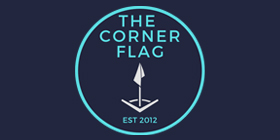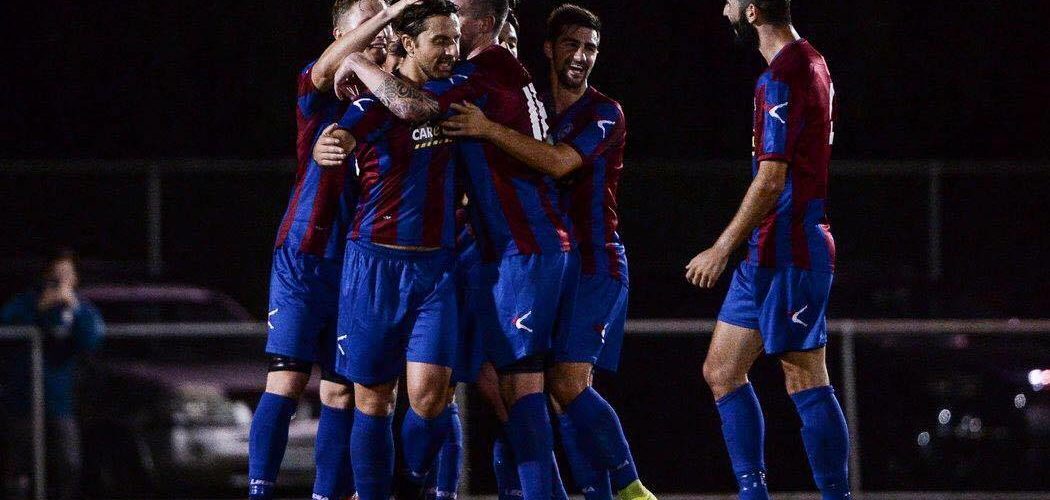Image: Mark Avellino
If you asked someone in Victoria to name Australia’s best distance shooter or dead-ball specialist, it’s likely their answer would be Andreas Govas.
Some of the Port Melbourne midfielder’s strikes have earned his side vital points this season, and his exploits in the NPL over the years have previously made national headlines. Legend also has it that while at Portsmouth, the former Greek and Australian youth international chipped goalkeeper David James from range during a training session with the first team, embarrassing the former England first choice.
90th min Bomba to make it 2-1 vs @NGWFC #KnuckleBall #Bomba #NPLVic @PMSCSharks #OnlyBombas pic.twitter.com/jMdOmZekCP
— Andreas Govas (@AndreasGovas) June 20, 2017
“I’ve had a look at the goals I have on film – they never seem to be normal goals. They seem to be outside the box and pretty exciting to watch,” Govas admits.
“It’s one of my best traits and probably the only quality I have that I can stand by and say that it’s high-class. It is a special quality that I’m lucky to have. It’s a lot of hours of practice and some natural ability helps, although sometimes it does go 30 metres over the bar.”
The former Heidelberg and Fawkner junior honed his skills at the VIS before professional stints abroad at former EPL powerhouse Portsmouth and then Greece and France. Despite a promising youth career, a range of injuries scuppered his overseas odyssey, while a lack of professional opportunity upon his return to Australia also meant some of his talents weren’t fulfilled on a national stage.
It was while at the VIS, however, alongside a talented pool including Paul Giannou, Matt Spiranovic, Adrian Leijer, Leigh Broxham, Milos Lujic, Dimi Hatzimouratis and Matt Theodore that his ability was noticed by Portsmouth’s scouts.
“I was lucky in my first year of the VIS to have Ernie Merrick, who helped all of us. Speaking to Paul [Giannou] and some of the boys, they’re pretty much our best memories of youth football – you feel like a pro and trained like a pro and were surrounded by good players.
“We can attribute the relative success of these boys’ careers to the program and it’s disappointing it’s not around anymore – if you look at the players who came through, the reputation speaks for itself.
“I was at Portsmouth before their financial crisis – the year they were spending all their money, really, and won the FA Cup. I had teammates such as Jermain Defoe, Lassana Diarra, Niko Kranjcar and it was great to be in such an environment surrounded by great players.
“Pretty much everything I learnt as a professional I learnt at Portsmouth. I had great coaches in Paul Hart and Ian Woan, who had great reputations in the UK. Everything after that … I don’t think I learnt much but it was a matter of gaining experience and continuing to develop by playing games and training hard.”
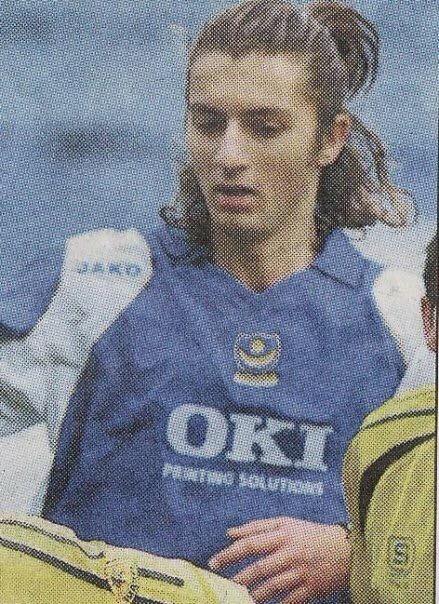
A dual national, while at Portsmouth Govas was invited to represent both the Greek and Australian national youth teams. He joined fellow Greek-Australians Giannou and Dean Bouzanis at the former before switching to the latter, where he won silverware at the AFF U19 Youth Championship in 2008.
“I was invited to play for Greece a few times. Australian selectors were hovering around too at the time and I was then invited to a camp. I did well and got selected for the AFF championship, which we won.
While Govas’ career trajectory was on the up, his body could not keep up with the workload.
“I had a few injuries in my career which I can attribute overworking and trying too hard. After training I’d go to the gym and go for runs and do too much,” he says.
“My body just crashed at one stage, which is disappointing because in my first two years as a pro I had surgery four times. It makes it hard to earn contracts and I had to move from club to club to try make my mark.
Released from Portsmouth, Govas headed to Greece, plying his trade across numerous clubs in various divisions. His senior debut was at Apollon Kalamarias but after seven appearances he switched to Kozani and then Kavala, returning for loan stint back at Kozani where he enjoyed his most successful overseas stint with seven goals in 27 games.
“Fortunately I made a bit of a mark in Greece in the second and third divisions and earned a contract at top-flight club Kavala, which finished just a spot outside a Europa League spot.
“I was sent out on loan and that was a really good experience but the club was relegated to the amateur divisions for financial issues and my contract was void.”
Signing at French side Troyes before returning to Greece with Kalloni, Govas played a key part in the club’s promotion to the top flight.
before #kalloni #superleague pic.twitter.com/6HRaJJzkX9
— Andreas Govas (@AndreasGovas) June 11, 2013
Taking time out to return to Australia, Govas was training at Oakleigh Cannons to keep fit when the club’s then-coach Miron Bleiberg recommended him to Ange Postecoglou at Melbourne Victory.
“Europe was a bit of an adventure. You learn a lot about yourself and pro football and how things work,” he says.
“But I felt like I wanted to stay and plant some roots here. I got a call from Paul Trimboli to come down. Ange was happy, things were looking quite good.
“But at the time they had a full quota of players and I had to wait for a player to leave,” he says, likely alluding to Mauritian midfielder Jonathan Bru. “Unfortunately for me, that player did not want to leave and I had to look elsewhere”.
With no other professional offers forthcoming, he signed on to play with Oakleigh in the first season of the newly implemented NPL Victoria. One of the highest-profile squads at the time coached by a former A-League manager, the Cannons were locked in a two-horse race with South Melbourne.
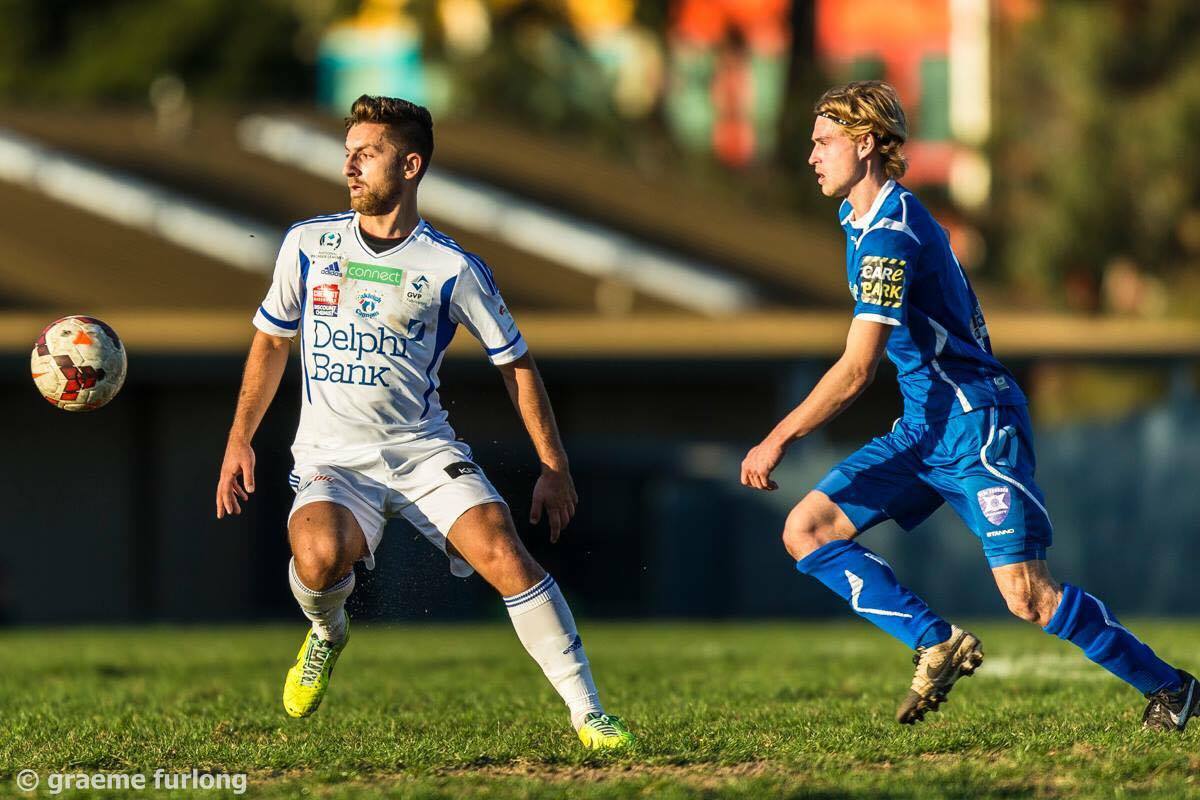
Despite scoring the most and conceding the fewest goals all season, ultimately they could not catch the runaway leaders, whose pragmatic style under Chris Taylor earned them the key results to take the title.
“We finished second, which I think the club deemed a bit of a failure. Oakleigh went all out in terms of budget and wanted to win top spot. But South Melbourne were amazing that year and dropped hardly any points, and with no finals that year we finished second.”
The 2015 season was a homecoming of sorts, a return to the club where Govas spent most of his formative years. A memorable year on numerous fronts, the club fell short in the finals but Govas took part in that magical FFA Cup night against Melbourne City, turning out in front of 11,000 people at the Olympic Village.
“Going back to Heidelberg it felt like I was going back home. Deep down I could say I’m a Heidelberg fan having spent so many years at the club.
“In my first season there everything was going really well with the deep cup run. I had a very good season there, as did some of the boys, including Dan Heffernan who scored a professional contract.
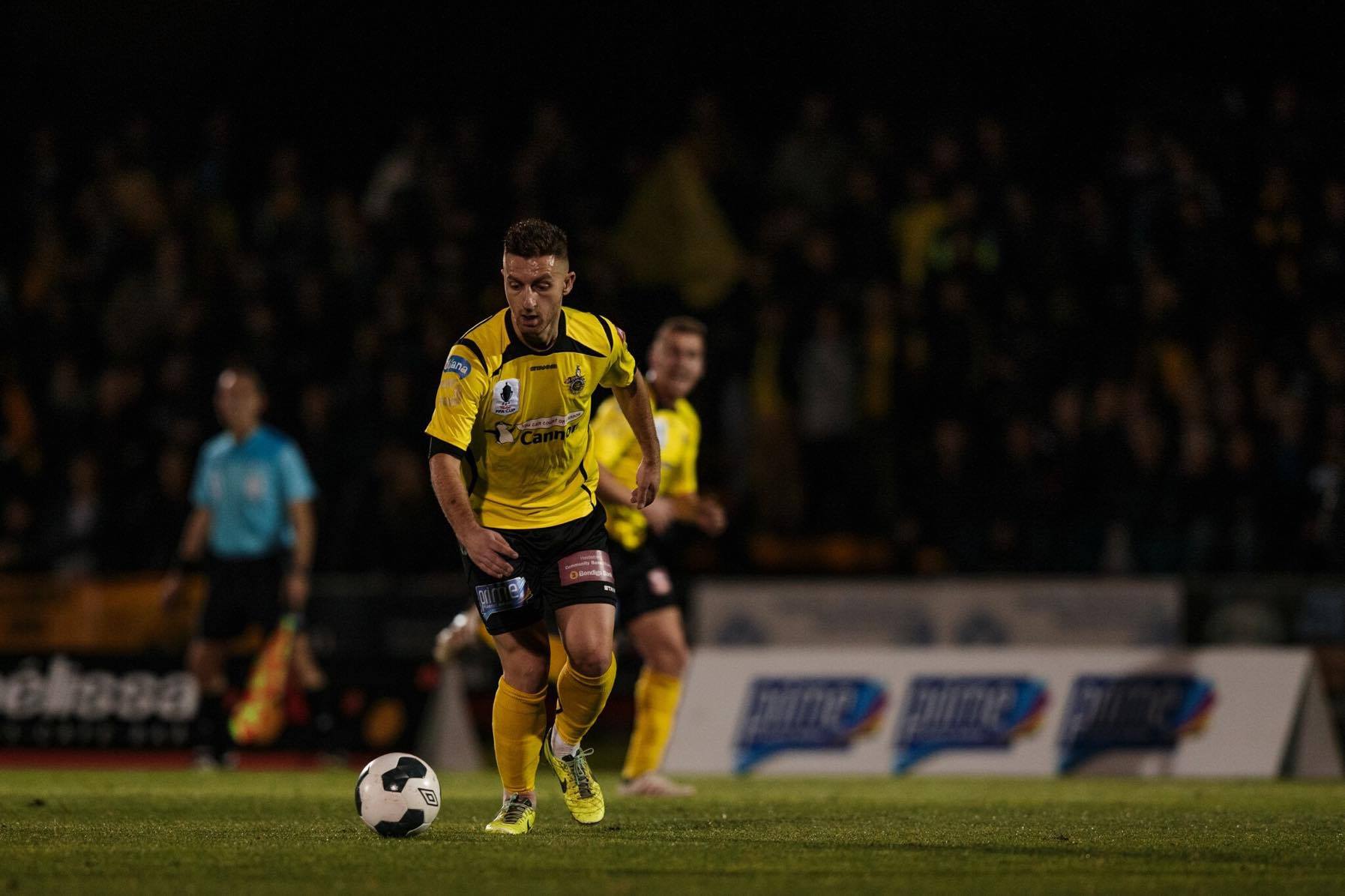
“Next season I got injured in the first game against South [a humiliating 6-0 defeat at Lakeside]. After that the team improved in results and George Katsakis doesn’t like to change a winning side, so I didn’t have much game time and departed.
“I left on good terms. I had a really good time there and was disappointed to leave but at my age I wanted game time. Who knows, maybe I’ll be back there one day.”
The 27-year-old had half a season at Bulleen Lions, following Barba to JL Murphy Reserve in 2017, where the midfielder has been one of the club’s best with eight goals – many of them his trademark long bombs.
“They’re a club trying to do things the right way, Dom came in and made a lot of changes, pretty much a completely new squad, lots of the new players came in right at the end of the transfer window.
“The team hadn’t really gelled early even though we got some decent results; we’ve gelled better as the season’s gone on.”
While an A-League opportunity may have bypassed Govas, juggling a corporate career with his footballing commitments is a good balance for the talented midfielder, who continues to dazzle audiences with his uncanny ability to produce the spectacular.
